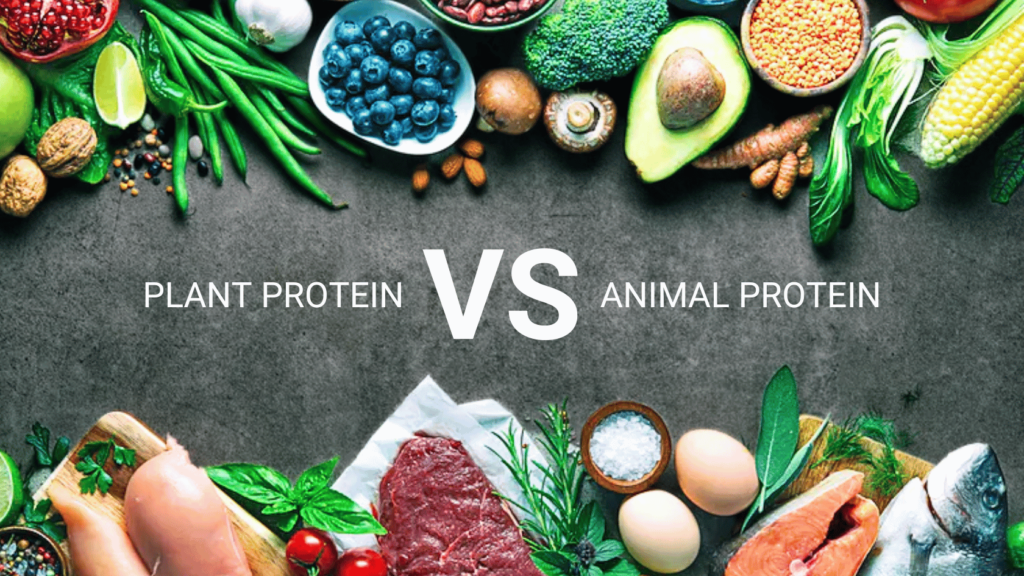Whey Protein vs. Plant-Based Protein Powder For Men: Which Is The Ideal Choice?

Protein vs. Plant-Based Protein
Protein powder is the most common supplement we’ve seen in the health and wellness market. It’s revered among those who indulge in an active lifestyle through cardio training, weight lifting, and other physical activities like swimming, hiking, rock climbing, and more. Though we’re aware of the importance of eating a balanced diet, protein powders are considered to be beneficial, especially for those who want to gain more muscle.
Aside from healthy fats and carbohydrates, protein is the most important nutrient that acts as a building block to our health. While whey protein is considered the most common form of protein supplement, the market has seen a steady increase in plant protein. Whether it’s dietary preferences or health restrictions, there are multiple reasons why plant protein is gradually becoming a go-to source of protein for many. So, let’s see the characteristics of plant and whey protein and what makes for an ideal choice.
What is Whey Protein?
The process of deriving whey protein may seem ironic seeing as it is derived from the cheesemaking process. It involves adding enzymes to separate the curd from liquid whey. The latter is then pasteurised from which the protein is concentrated and isolated.
Whey protein is classified under three categories – whey protein concentrate, whey protein isolate, and whey protein hydrolysate. WPC is at its purest form once the whey is pasteurised. It has the most fat and lactose content. It has the least amount of protein serving ranging between 30 to 80%. WPI goes through an additional step of filtration where additional fat and lactose are removed. WPI consists of 90% protein. Even though WPH has the same amount of protein as WPI, it’s further broken down into smaller units of amino acids.
WPI is a great option for those who want to keep their carbohydrate and fat intake in check. WPH easily absorbs into the system, enabling faster muscle recovery post-workout. Overall, whey protein is ideal for flexitarians and lacto-vegetarians. As opposed to casein, whey protein is quick-digesting and is higher in BCAA.
What is Plant Protein?
Plant protein is considered a sustainable source of protein by vegans. It comes from various sources of plants, legumes, lentils, and rice. According to experts, plant based best protein powders are a better means of protein as compared to highly processed plant-protein foods like vegan meats and cheeses. The only difference is that, unlike whey protein, plant proteins do not contain all the essential amino acids to achieve full protein needs. For the uninitiated, ‘full protein’ refers to a protein that has all nine essential amino acids to support muscle building, recovery and weight loss. Therefore, some plant protein powders contain a mix of different sources. Here are some common sources of plant protein.
Peas
Pea protein is mostly derived from yellow peas that have a stronger amino acid profile. Therefore pea protein isolates are considered to be great to support muscle growth and repair. What can also be appreciated about pea protein is its easy digestibility. Therefore, it’s a good choice for people who have gut sensitivity or are lactose intolerant.
Soy
When we think of soy protein, we immediately think of tofu. A fun fact about soy protein: It boasts complete protein which places it in the same league as animal protein. If you’re going for soy protein, know that you will get all nine essential amino acids for optimum muscle growth. Though it digests well and supports heart function, it could be triggering for those who may have soy allergies.
Rice protein
If you want to choose rice protein, go for brown rice protein as it contains all essential amino acids. A great thing about rice protein is that it doesn’t contain any nut or soy allergen, making it safe to consume. Much like pea and soy protein, rice protein also digests easily. Since rice protein doesn’t have an inherent taste, it can also be incorporated into a wide range of smoothie and meal recipes.
Hemp
Hemp protein may not be popular in the list but it packs just as much punch as the rest of its plant-based counterparts. Aside from protein, it also contains essential fatty acids, fibre, vitamins, and minerals. The only caveat is that it can have a slightly earthy, herbal taste.
Settling The Debate
Both whey and plant protein have satisfactory amounts of protein serving and essential amino acids to aid muscle building, post-workout recovery, and healthy weight loss. Choosing between whey and plant protein mainly depends on one’s dietary preferences and restrictions. If you have certain nut or soy allergies, go for hydrolysed whey protein powder for men that is broken into smaller amino acids. Peas, brown rice, and hemp are friendly alternatives, too. If you’re lactose intolerant but follow a keen weight-lifting routine, go for a mix of plant proteins to get a better protein serving and essential amino acids as possible. Make sure to always check the amount of protein serving and BCAA in a protein powder for men before buying it.








